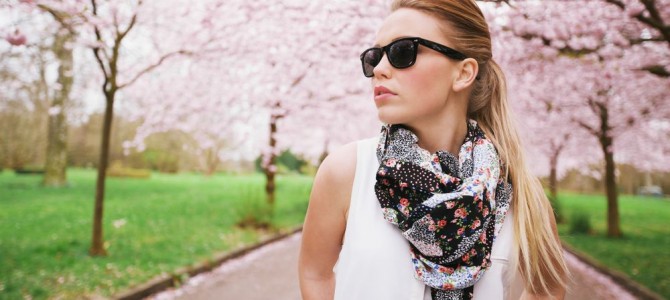The Department of Justice filed a brief Aug. 30 to support several Asian-American plaintiffs involved with a group called “Students For Fair Admissions” in a racial discrimination case against Harvard University. The DOJ’s actions united the Trump administration with anti-affirmative action activists, who have long claimed that elite Ivy League colleges are denying Asian-Americans admittance on the basis of their race.
The reaction from liberal publications was mixed, but one bizarre critique generated the most buzz: the idea that with this lawsuit Asian-Americans are really just “being used” to advance the causes of white people — because they have become, in fact, much like white people.
An article in The Atlantic suggests the alignment of white activists and Asian-Americans against affirmative action exemplifies a trend provocatively called “whitening” — that is, expanding the white race to “swallow up” other races and assimilate them into the dominant white cultural narrative.
This view has spilled into mainstream culture to become one of the left’s defining narratives of the Asian-American experience. The film “Crazy Rich Asians,” a Hollywood blockbuster released on Aug. 15, includes a scene where a wealthy Singaporean mother insults an Asian-American by calling her a “banana”: yellow on the outside, white on the inside. The implication is that Asian-Americans are just accomplices to white hegemony, not true racial minorities.
Perhaps Asian-American “whitening” makes sense in an identity-politics, white versus minority worldview. After all, if you’re a non-white person who supports the issues the left believes perpetuate white supremacy, you’re supporting the enemy, and therefore, you must want to be like the enemy. Yet such a prognosis is wrong, no matter how much the left wants it to be right.
For one, much of what progressives accuse Asians of doing in “appealing to white tastes,” as The Atlantic article puts it, isn’t so much kowtowing to whites as it is simply fighting for the self-interest of our own race. Asian-Americans fought affirmative action long before white Americans like Abigail Fisher (of Supreme Court fame) came to the forefront. Scholarship focused on Asian resistance to affirmative action has circulated since at least 1995. Our fight against affirmative action is not just about white people — it’s about ourselves, and what we believe the true meaning of “equal protection under the law” should be.
But there’s a larger point here about culture and the way Asian-Americans adopt mainstream American culture and behaviors. Is this culture a “white” culture, one that “swallows up” Asian identity? Progressives would like you to believe so.
But this isn’t true. If you don’t believe me, just turn on your radio. R&B music from artists like Rihanna and Camila Cabello (both from the Caribbean) dominates the airwaves. Manga, a Japanese comic book form, and the Korean martial art Taekwondo are hobbies for many Americans of all races. Hookah, an instrument for vaporizing tobacco popular in the Middle East, has emerged as a popular alternative for Americans who smoke cigars and cigarettes. The trend for Americans is not toward “whitening” but toward a great blend of cultures — and liberals should not resent the Asian-Americans who simply wish to participate.
That doesn’t mean that integrated Asian-Americans are the same as everyone else. Deference to parents is much more important among those of East Asian heritage than among Caucasians. Asian-American (especially Chinese) excellence in education stems back to ancient cultural norms, where civil service exams determined political status. These are long-inherited traditions that distinctly define the Asian-American identity.
Our discourse deserves a radical alternative to progressive “whitening” theory, one that is actually not radical at all, but deeply ingrained in the history of America. It is called the Melting Pot, in which every culture can maintain its distinct identity while contributing to the larger American cultural fabric. Various cultures of all kinds have done this throughout America’s history. The Irish, for example, have integrated fully into the American fabric while maintaining their traditions (likely found at a pub near you). When you immigrate to America, you don’t have to give up your heritage, but you vow to learn a new one as well.
And this is a good thing. According to a 2018 study by The American Sociological Review, U.S. immigrants acclimate to their status as an American faster than immigrants to almost every other country in the world, becoming fully economically adjusted in less than 20 years. Contrast this with countries like Germany and Sweden, where the failure to assimilate immigrants has created almost feudal conditions of social separation between natives and migrants — no-go zones where migrant rule is so strong even the police don’t know to regulate them.
The evidence is clear. America does it better. So when Asian-Americans fall in love with American ideals while maintaining their enthusiasm for their heritage, this isn’t “whitening.” This is the American ideal.








